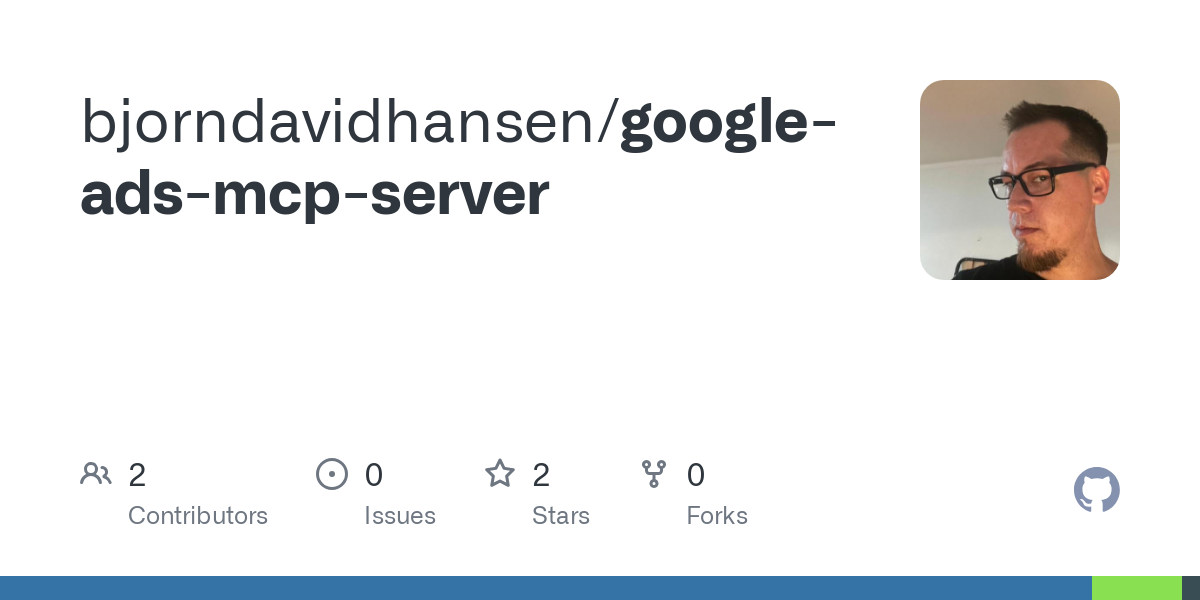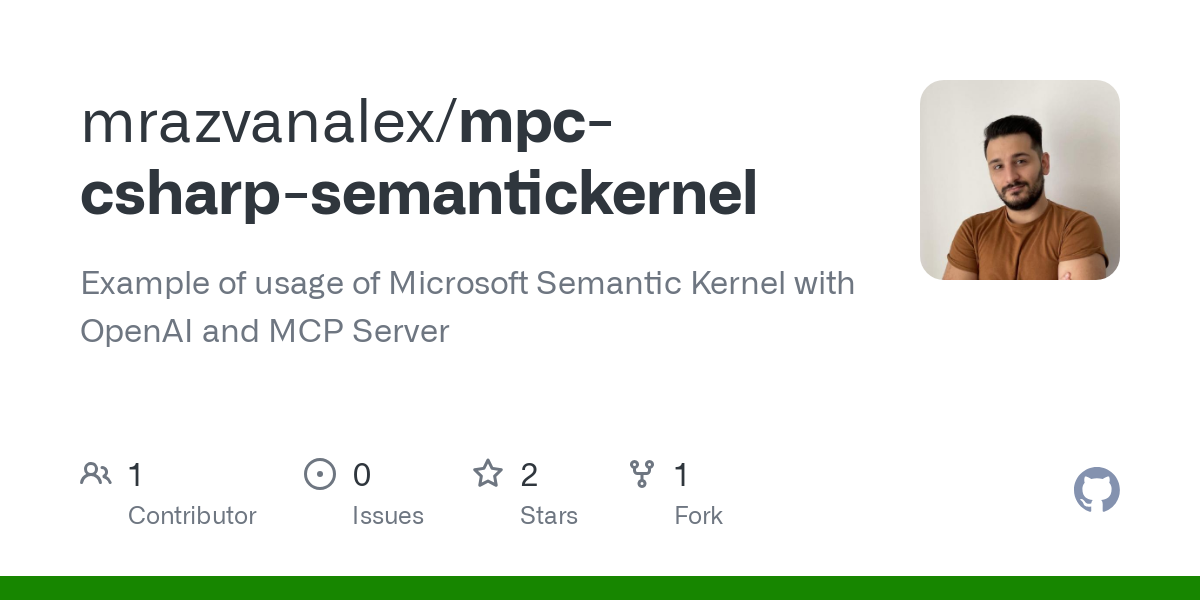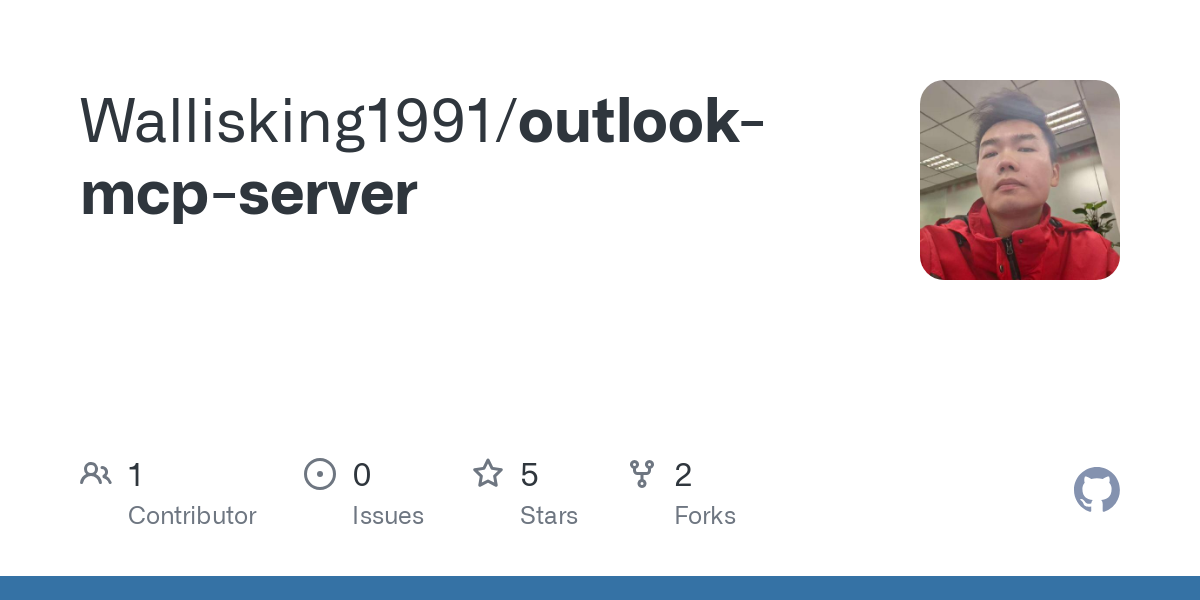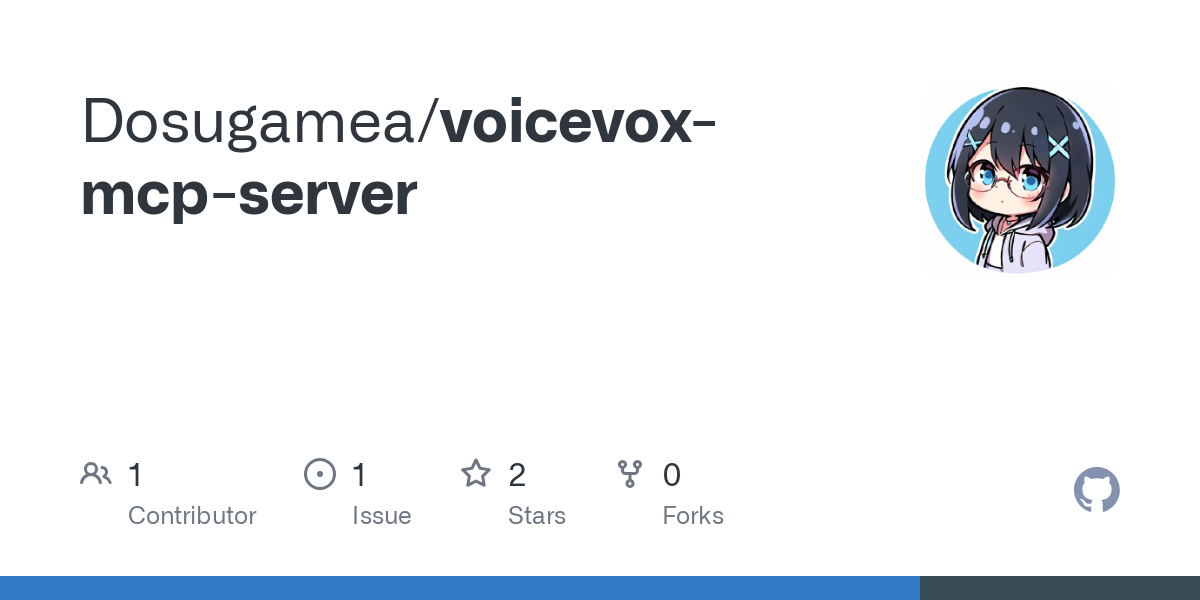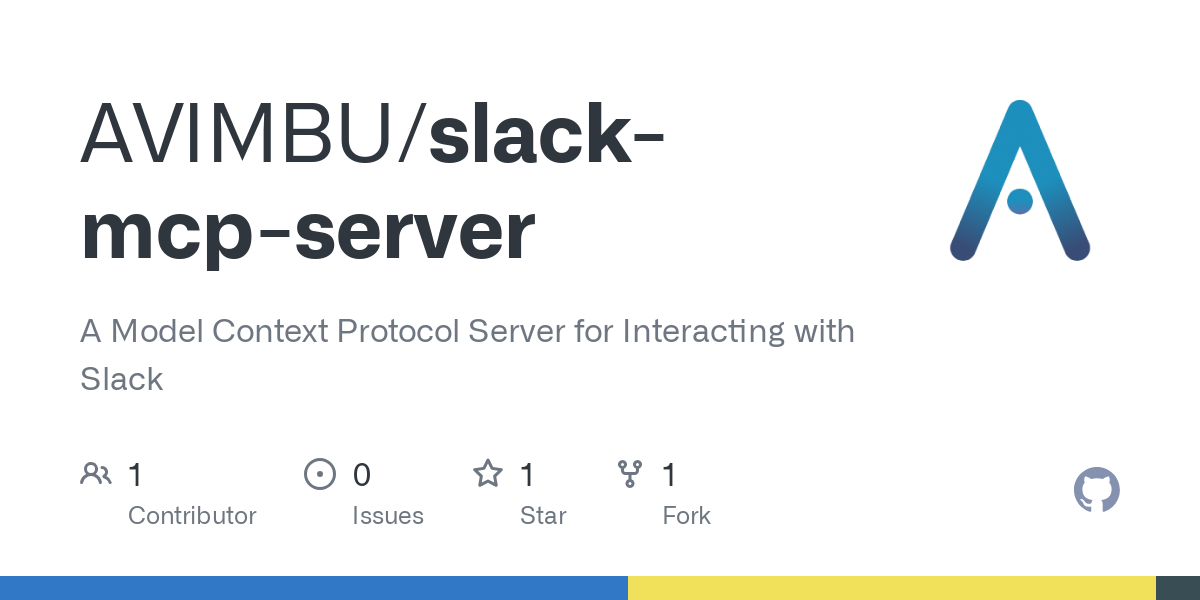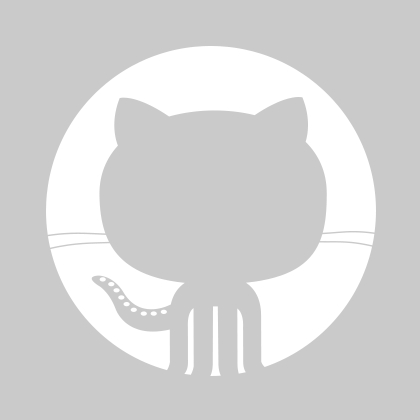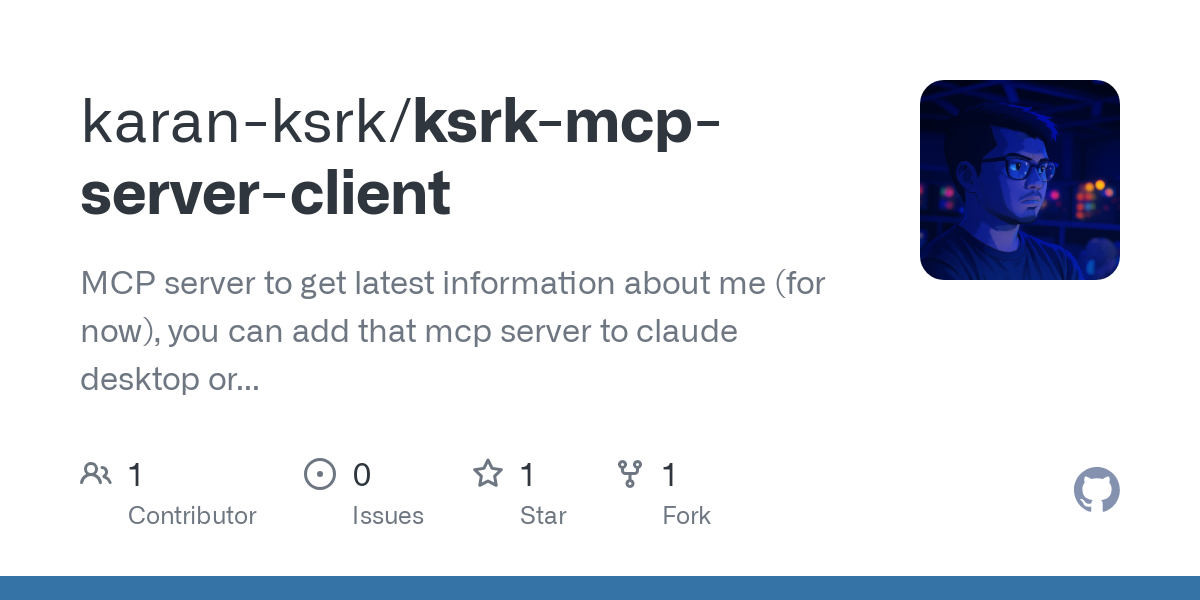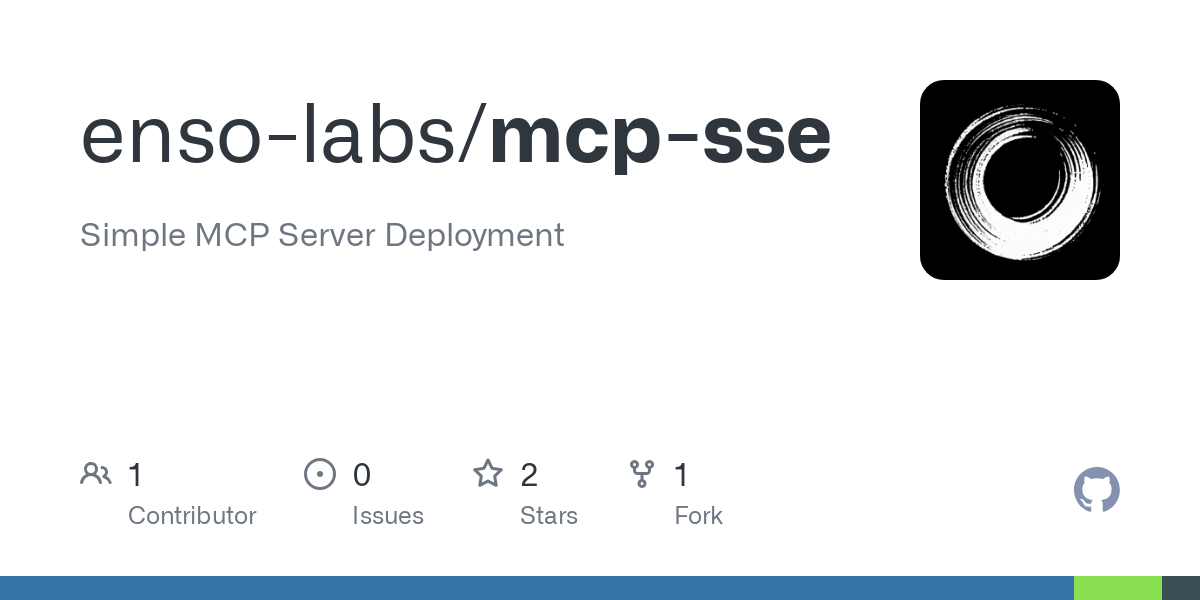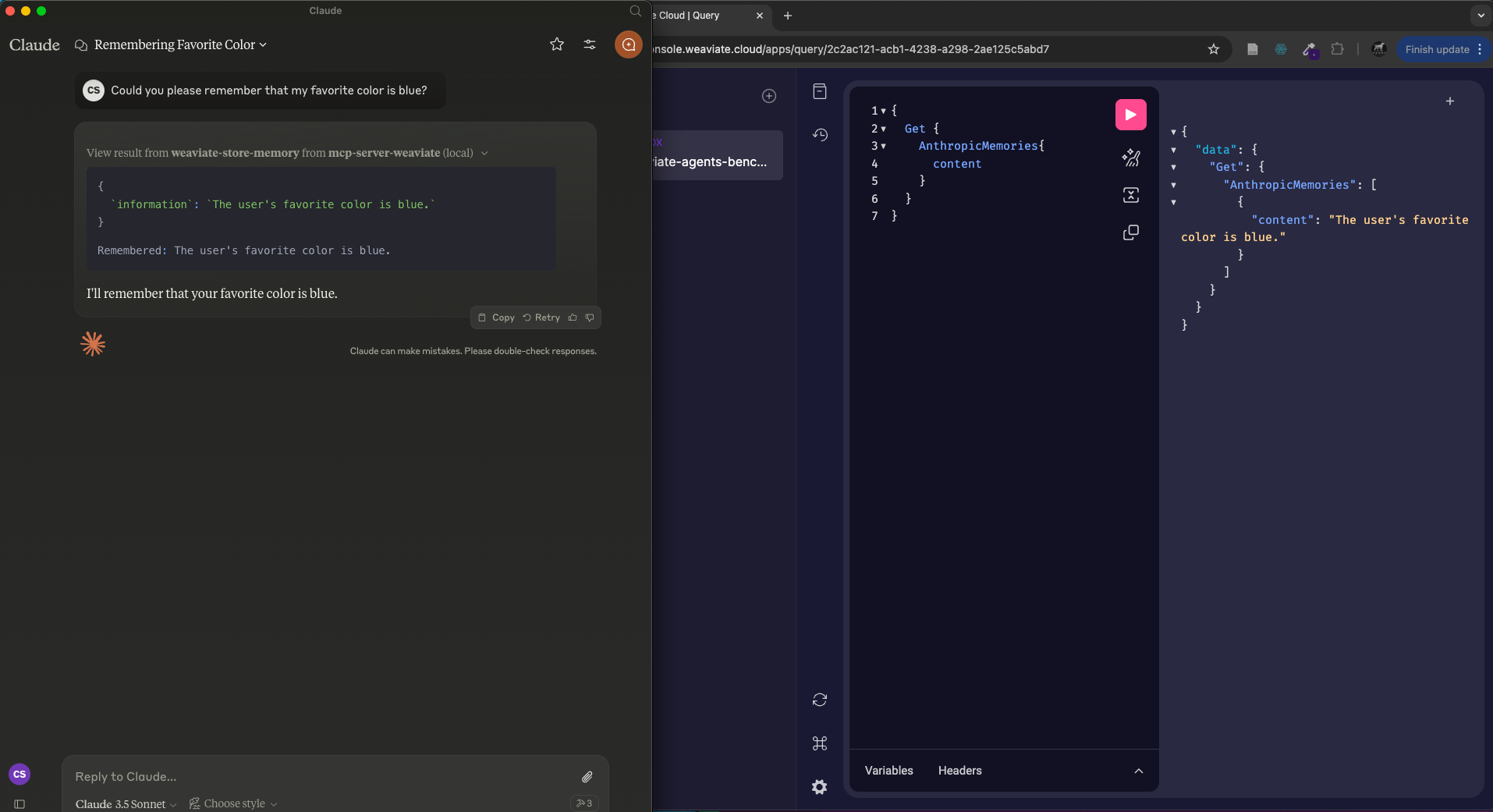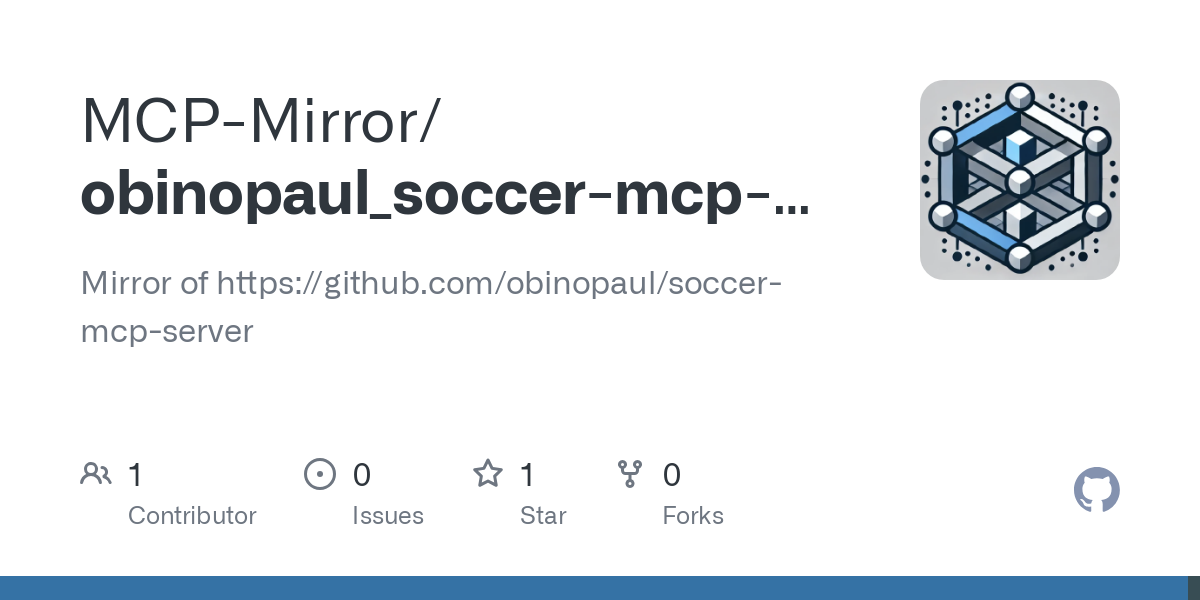All MCP Servers Complete list of MCP server implementations, sorted by stars
This MCP server facilitates integration with Turso databases, allowing Large Language Models (LLMs) to manage and query databases efficiently. It includes a robust two-level authentication system for handling organization-level and database-level operations. Key features include database creation, deletion, query execution, and vector search capabilities, making it a powerful tool for LLM-driven database management.
The Google Ads MCP Server provides seamless access to Google Ads data through Claude Desktop, enabling users to analyze campaigns, accounts, and performance metrics. It supports multi-environment configurations, Docker-based deployment, and integrates with Claude Artifacts for data visualization. The server is designed to improve performance with built-in caching and reduce API calls.
This project showcases the use of Microsoft Semantic Kernel in combination with OpenAI's API and the Model Context Protocol (MCP) Server. It provides a practical example of how to set up and run an AI-driven application that leverages these technologies. The project includes sample configurations for both the MCP Server and a web application, demonstrating how to send requests and handle responses effectively.
The Outlook MCP Server provides a Model Context Protocol (MCP) interface to interact with Microsoft Outlook emails. It allows users to list folders, retrieve emails, search by keywords, view email details, compose new emails, and reply to existing ones. This server is designed for integration with MCP-compatible clients like Claude Desktop, offering a seamless way to manage email workflows programmatically.
The Voicevox MCP Server integrates VOICEVOX-compatible voice synthesis engines (AivisSpeech, VOICEVOX, COEIROINK) with the Model Context Protocol (MCP). It allows seamless voice synthesis in AI agent modes, such as Claude 3.7, via Cursor. The server supports both Windows and Docker environments, providing flexibility for developers and users to integrate voice synthesis into their workflows.
This project implements a Model Context Protocol (MCP) server that facilitates interaction between Slack and MCP clients like Claude Desktop. It allows users to post messages to Slack channels and query user lists within their workspace. The server supports local development and includes Slack permission scopes for various functionalities.
This project sets up a Model Context Protocol (MCP) server using Docker, with Redis for caching and TimescaleDB for handling time-series data. It leverages FastAPI as the web framework and Docker Compose for container orchestration. The server is designed for efficient data management and auto-restarts on reboot using a systemd service.
This MCP server provides standardized tools for interacting with the PI Dashboard API, allowing AI assistants like Claude to securely access and manage resources such as categories and charts. It supports features like authentication, chart analysis, and filtering, and can be installed via Docker, Smithery, or NPM for seamless integration.
This project implements an MCP server designed to fetch and provide the latest information about the author. It can be integrated with Claude Desktop or used to create custom clients. The server includes tools for web searching, URL fetching, and specific queries about the author. It leverages Python, OpenAI's GPT-4, and the ScrapingDog API for web scraping functionality.
This project supports large language models in accessing various API types and provides an example of integrating these models into a local application. It includes steps for setting up the environment, configuring the API, and modifying server settings to enable seamless interaction.
The MCP Context Manager is a collection of domain-specific servers that augment AI models with persistent context and project management capabilities. It uses knowledge graphs to store and manage context across various domains, ensuring efficient access and session management. The Context Manager provides a unified interface for accessing multiple domain servers, enabling cross-domain context and smart routing. It integrates with AI tools like Claude and supports features like session management, context building, and cross-domain relationships.
MCPServe is a lightweight MCP server designed for shell execution, enabling users to connect locally via Ngrok or deploy it as a Docker container running Ubuntu24. It provides flexibility for local development or containerized environments, making it suitable for various use cases requiring MCP server functionality.
This project implements a Model Context Protocol (MCP) server that allows AI assistants, such as Claude, to interact with Outline's document management services. It provides features like document search, collection management, document reading, comment management, document creation, editing, and backlink management. The server acts as a bridge between natural language interactions and Outline's API, enhancing productivity and accessibility for document handling.
The Weaviate MCP Server for Claude Desktop is a local server implementation that integrates with Weaviate, a vector search engine, to provide advanced search and data storage functionalities for Claude Desktop. It supports configuration via Smithery and includes features like search collection management, API key integration, and environment setup for seamless operation.
The Soccer MCP Server is a Python implementation of the Model Context Protocol (MCP) designed to provide access to football (soccer) data, including live match information, league standings, team details, and player statistics. It integrates with the API-Football service via RapidAPI, offering a comprehensive set of tools for developers and applications to retrieve and analyze football data. The server is built using Fast MCP, Pydantic, and Requests, and can be deployed using Docker or directly via Python.

